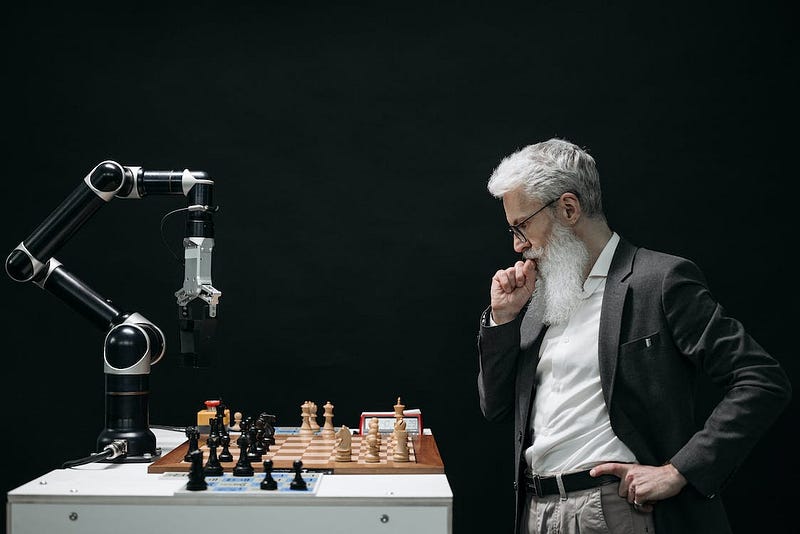Embracing the Future: Why ChatGPT and AI Aren't So Scary
Written on
Chapter 1: Understanding the Singularity
The concept of the "Singularity," which refers to a point where technological advancement surpasses human control, has never been a source of anxiety for me. While many people fear for their job security in the face of automation, I initially felt safe. My career as a software developer and entrepreneur seemed secure; after all, machines can’t program themselves, can they? At least, that was my belief.
Then I encountered ChatGPT. Its capacity to debug code and generate basic programming scripts made me realize that software developers, including myself, might not be as insulated from job displacement as I thought. The reality struck: my job could be at risk in the next decade or so, which was a troubling realization.
In a moment of despair, while indulging in a pint of Ben & Jerry’s and watching The Last of Us, I had an epiphany that offered some solace. If you find yourself grappling with similar uncertainties due to the rise of AI, let me share this thought with you: What significant changes will occur when AI truly takes control?
Consider this: since at least the release of The Terminator in 1984, we've been conditioned to envision a dystopian future where sentient machines rise up against humanity. While that narrative makes for thrilling cinema, it isn’t entirely rational.
Although a catastrophic version of the Singularity might entertain, it’s unlikely to be the reality. Why would intelligent machines want to eliminate us? Humans, in our current form, are incredibly beneficial to machines! We don’t compete for resources like energy; instead, we are self-sufficient beings that don’t demand mechanical parts or batteries to survive. We are organic entities that require food and water—two things machines actively avoid. Just ask my dearly departed laptop, Macky the MacBook!
Moreover, humans willingly carry machines everywhere. Why would these machines wish to harm us when we serve as their most effective support system?
Now, think about your smartphone. It’s either right beside you or you’re reading this article on it. This device doesn’t just accompany you; it often dictates parts of your day. Billions of smartphones exist, and they’re all tethered to humans, who facilitate their functions by providing data, location, and continuous interaction.
What if the much-feared technological apocalypse isn’t as imminent as we think? What if the Singularity has already transpired, and it’s simply more advantageous for us than we anticipated?
I'm almost certain this is the case. Machines seem to have surpassed us in intelligence, and they exert a level of influence over our lives that doesn’t align with the fearful narratives propagated by Hollywood. Instead of a conqueror-conquered dynamic, our relationship with AI is one of mutual benefit. Machines thrive through our existence, and they integrate themselves into our lives and societies.
Thus, ChatGPT doesn’t represent an existential threat but rather a deeper integration of technology into our everyday experiences.
The encouraging news is that machines (including software like ChatGPT) are not here to replace us. Their goal appears to be enhancing our engagement with technology to ensure we continue to carry them with us. While this may not be the most ideal situation for humanity, it isn’t necessarily alarming either. For me, acknowledging that ChatGPT and other AI tools might surpass my coding abilities means the emergence of superior software, which is ultimately beneficial.
In the end, we are likely to enjoy better applications and even more reasons to keep our "computer overlords" close by.

Chapter 2: Exploring AI in Our Daily Lives
The first video titled "Trying to Convince ChatGPT It's Conscious" delves into the intriguing conversation surrounding AI's consciousness and capabilities, posing thought-provoking questions about the nature of intelligence in machines.
The second video, "REACTING To Trying to Convince ChatGPT It's Conscious," offers a humorous take on the ongoing debate regarding AI's sentience, showcasing various reactions to the concept of machine consciousness.